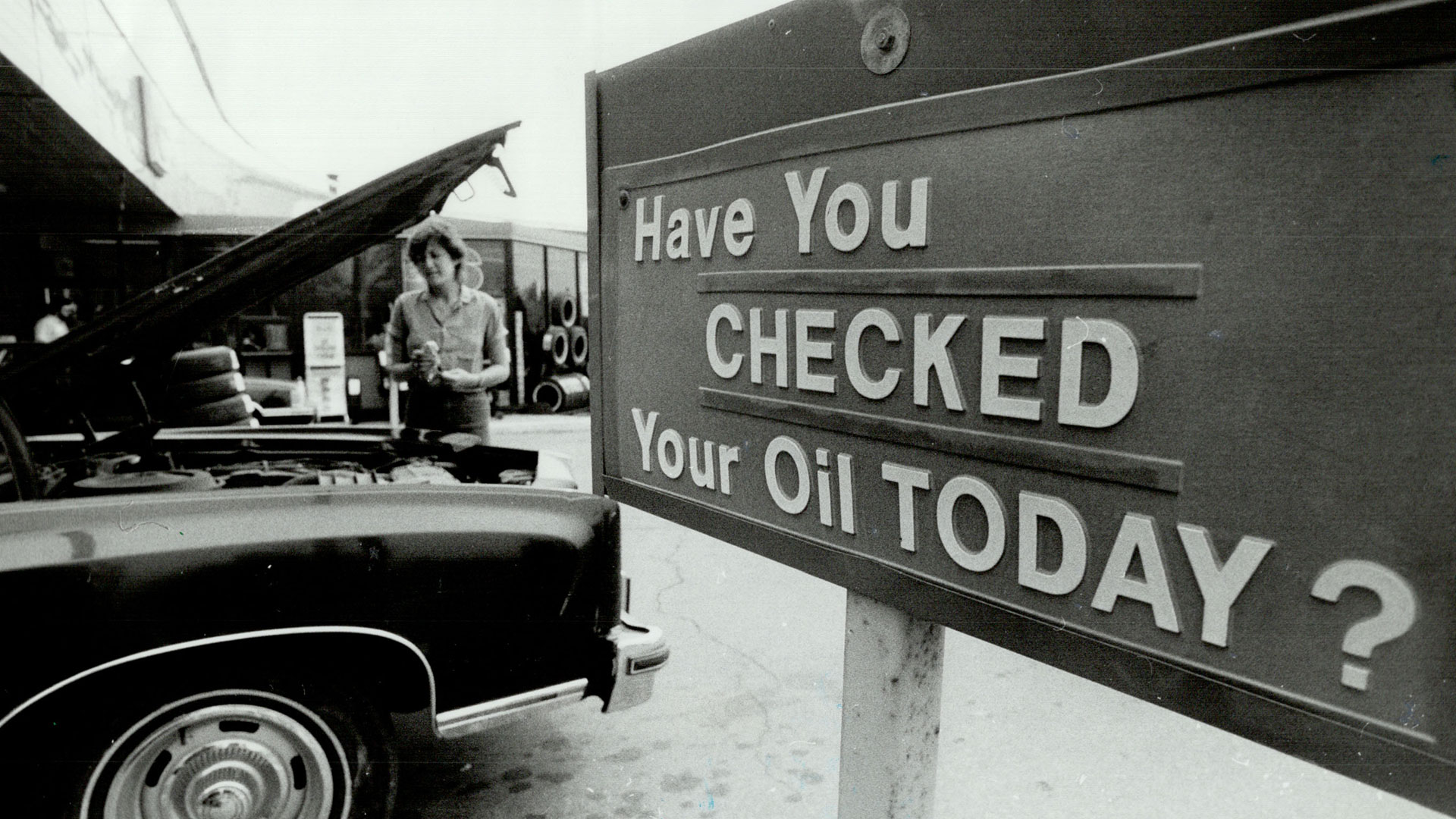

We may earn revenue from the products available on this page and participate in affiliate programs. Learn more ›
Ask a dozen different people how often you should change your oil and you’ll get a dozen answers. Some stand by the classic 3,000-mile rule-of-thumb, while others posit that modern oils last longer than whatever it was people were using when that informal rule was created.
I’m somewhere in between, because it depends. What kind of engine are you running? What sort of driving do you do? What’s the climate like where you’re operating your machine? Keep in mind that motor oil isn’t the only fluid that needs to be changed on a regular basis. If you plan on keeping your vehicle for a while, it’s wise also to change transmission oil, coolant and even power steering and brake fluid.
Like everyone, I have my own ever-changing opinions on these things. So for the sake of simplicity, I asked a couple of experienced mechanics – Mike Hogarty, an experienced ASE master technician who owns a fabrication shop in Northern Virginia, and Paul LeBlanc, who owns and operates Paul’s Auto Repair, in East Hartford, Conn. – what they thought. The bottom line is that you should always defer to the manufacturer recommendation for any given vehicle (remember the owner’s manual, that funny, not-so-little book taking up space in your glove box?). Here’s what else they had to say.
Motor Oil
“It’s most important to check your oil regularly,” Hogarty says. “Low oil level is far worse than not meeting some kind of regular interval.”
The intervals he suggests for motor oil changes are 5,000 miles for synthetic blends and 10,000 miles for full synthetic. Hogarty also recommends the synthetic blend to customers, so that they can get their tires rotated with every oil change. LeBlanc sticks by an old standard, suggesting that the rule of thumb for oil change intervals is 3,000 miles for conventional oils and 5,000 miles for synthetics.

Transmission Oil
This is where things get tricky. Different vehicles require different types of transmission fluid (many manual transmissions use differential gear oil, and not all automatic transmission oils were created equal). Should you simply drain the transmission oil pan and change the filter, or go for the full flush by removing and replacing all the fluid in an automatic transmission? If it seems confusing, it probably is. Hogarty says that no matter what you do, don’t have this service performed at a quick lube shop.
In the old days, the guideline was to change transmission fluid every three years, or 30,000 miles, whichever came first. Your best bet on newer vehicles, according to both Hogarty and LeBlanc is to see what the manufacturer recommends. Some transmissions need regular maintenance, and others are dubbed a “lifetime fill” and can go up to 150,000 miles between oil changes.
“When in doubt, service the transmission with OEM fluid and filter starting at 60k, and every 30k afterwards,” Hogarty says.
Differential Oil
This interval, LeBlanc says, depends upon the type of differential and whether or not you use the vehicle for towing. Hogarty says 30,000 miles for conventional gear oil and 60,000 for synthetics. Diffs are pretty straightforward.
Coolant
This is one of the more overlooked fluids in a vehicle’s maintenance regime. When coolant gets old its pH changes, which can damage engine parts, gaskets and seals. You want to avoid allowing your engine to rot out from the inside, so having the coolant flushed and changed every three years is a good idea. Again, manufacturer recommendations vary – some newer vehicles specify every 10 years or 100,000 miles – but LeBlanc wisely suggests you check the coolant pH with an inexpensive kit every time you get the oil changed.
Brake Fluid
Did you know that you even needed to get your brake fluid changed? A lot of people are unaware that this is a thing. It is, however, an important thing. In order to keep it from boiling at the high temperatures generated by hot brakes, brake fluid contains chemicals that also cause it to absorb moisture. When brake fluid contains moisture, it will boil. It’s also incredibly corrosive, which is why it turns reddish brown when it’s been left in the system for too long.
The rule-of-thumb for brake fluid changes is every two years (every three months for track vehicles), but there are test strips available for reading the copper content in the fluid. Hogarty says that if it reaches 200 ppm, it’s time for a flush and replacement. LeBlanc says that if you’re replacing brake parts, you should also go ahead and get the old fluid flushed out. Every manufacturer has a specific procedure for how brake fluid needs to be flushed.
Power Steering Fluid
Generally, every three years or 30,000 miles, but every manufacturer has different specifications with regard to interval and type of fluid. If you’re lucky, your car has one of those new-fangled electric steering systems and you don’t even have to worry about this one.
—
So there you have it; a rough outline and an overarching principal: follow manufacturer recommendations. New vehicles in particular have much more specific maintenance requirements than the smoky old Model Ts that used to clatter around on America’s as yet unpaved roads. As LeBlanc said in an interview earlier this year, advances in efficiency have also led to our machines being much less forgiving than the rudimentary implements of yore.
“One size does not fit all,” he said.
Hogarty was adamant in his disavowal of quick lube shops, as they typically use a one-size-fits-all approach to fluid changes.
“Follow your vehicle’s maintenance guide to the letter,” he says. “Use only dealer parts and fluids if you want to ensure original quality fit-function and reliability. “
Pay a little more now, pay a lot less later. That’s the general idea. And also, for the sake of your car, be relentless in checking those fluids.